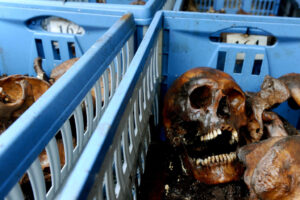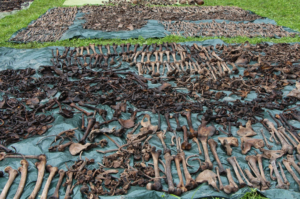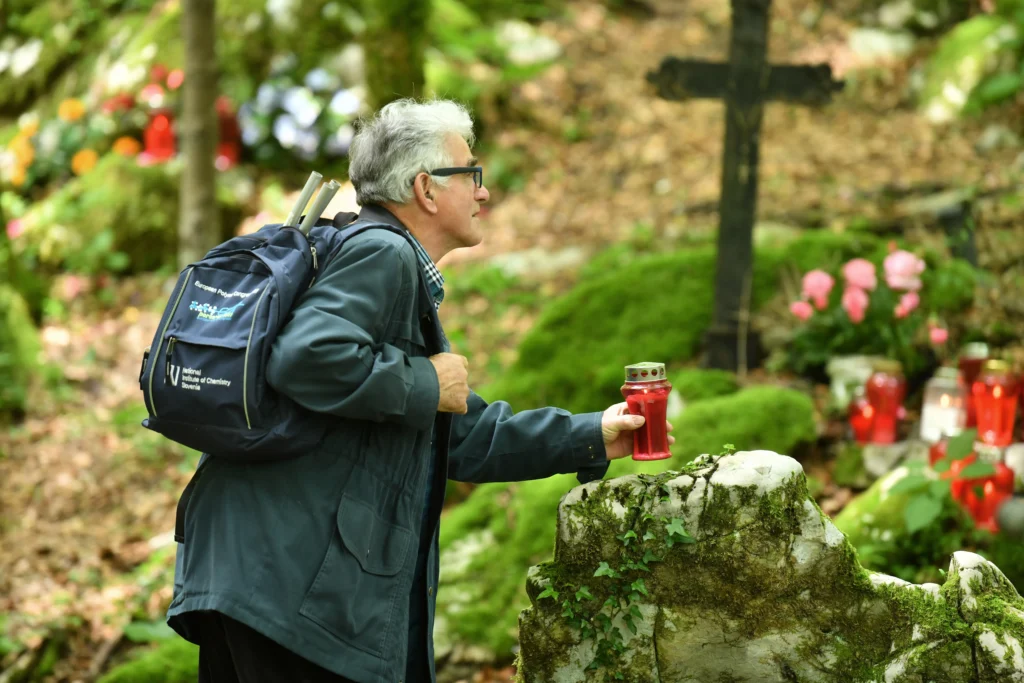On May 8th, 2025 – the day when Europe celebrated 80 years since the signing of the Instrument of Surrender of Nazi Germany and the end of the Second World War, Slovenian civil society organisations once again drew attention to the unsettled parts of our national past. In a joint statement, they stressed the duty of the Slovenian state to ensure public recognition, legal rehabilitation and dignified burial for the victims of communist revolutionary violence, and called for a definitive confrontation with this dark chapter of our national history.
Dr Matija Ogrin of the New Slovenian Alliance (Nova Slovenska Zaveza), Dr Janez Juhant of the movement United Under the Linden Tree of Reconciliation (Združeni pod lipo sprave), Romana Bider of the All-adoption (Vseposvojitev) movement and Vlasta Doležal Rus of the Let’s Awaken Slovenia (Zbudimo Slovenijo) institute wrote in their statement that “the end of the Second World War brought us, Slovenians, among other things, the violent victory of the revolution, the carrying out of mass murders, political trials, and the revolutionary corrupting of the Slovenian nation in communist Yugoslavia.” The authors also pointed out that efforts towards democratisation and reconciliation after independence have remained unfulfilled in key respect – the legal and public rehabilitation of victims murdered extrajudicially.

“With its independence, Slovenia broke its ties with the former totalitarian system and became an independent democratic state,” they warned, adding that it is the duty of the state to consistently enforce democratic standards, including in the recognition of all victims.
“This democratic framework requires those responsible in the country to acknowledge the internationally accepted and documented fact that during the Second World War, there was a great deal of suffering and sacrifice, both as a result of the liberation movement and the revolution, which tore apart families and the Slovenian nation, which lost almost a tenth of its population during the war and revolution,” they wrote.
More than 20,000 people were murdered extrajudicially in Slovenia during and after the war, which calls for the recognition of the crime and the naming of the perpetrators. Meanwhile, the organisations also point to the loss of the nation’s elite: “Slovenia lost tens of thousands more to the revolution after the war, who were displaced around the world, most of them being the cultural, political and economic elite of the Slovenian nation.”

Laws to bring the victims of revolutionary violence into the consciousness of a democratic Slovenia have never been passed, the statement recalled, adding that the state has a duty to right this historical wrong and to condemn fascist and Nazi crimes, as well as communist ones. Indeed, the condemnation of crimes is a prerequisite for the recognition of the innocence of the victims and for their legal, political and human rehabilitation. Rehabilitation means an end to any prior exclusion of people on the grounds of their alleged or actual counter-revolutionary orientation, if they have not been proven in a court of law to be personally guilty of a criminal act. This applies to the majority who were extrajudicially murdered during or after the war.
Among the key demands, they highlighted three steps and called on Slovenia to implement them without delay:
– A public national register of all victims of communist violence,
– legal condemnation of the crimes of the Revolution, and the rehabilitation of those murdered extrajudicially,
– a dignified burial in Ljubljana of the exhumed victims according to the wishes of their relatives.
“By condemning the crimes, we will give back to the victims what is theirs: a good name, a public memory and a grave among us. We cannot give them back their lives. But the slain can return to the consciousness and hearts of Slovenians with the inspiration of peace and harmony,” said the signatories of the declaration.
The signatories added that “condemnation of the crimes is the path to liberation from the trauma of individuals, families and the entire national community, which is a prerequisite for healthy interpersonal relations.” They believe that it is high time to consciously resolve the trauma of violence and give our successors a hopeful future.
They concluded their statement by calling on all citizens and politicians to commit themselves to meeting these demands, as only in this way will Slovenia be able to achieve genuine national reconciliation and lasting democratic stability.
Their message on this anniversary is summed up in the thought: “Unity, happiness, reconciliation, let them return to us …”.
Sara Kovač


